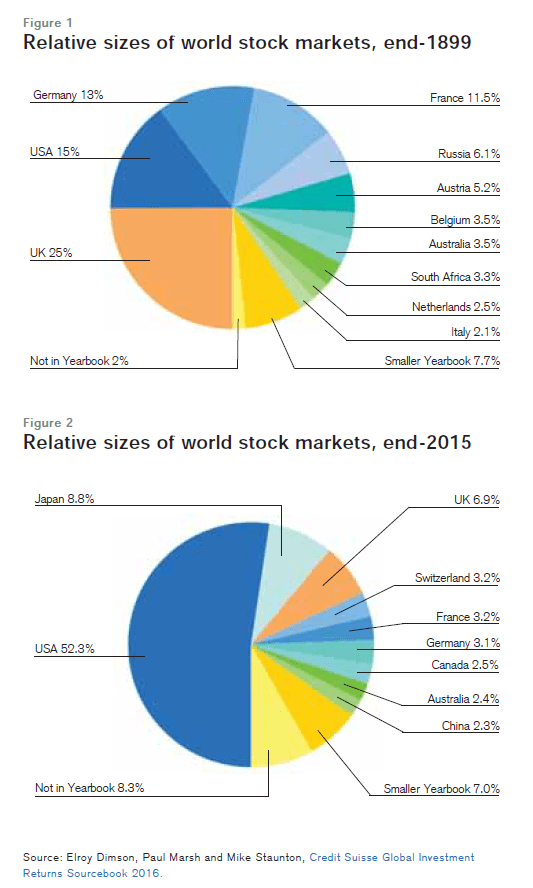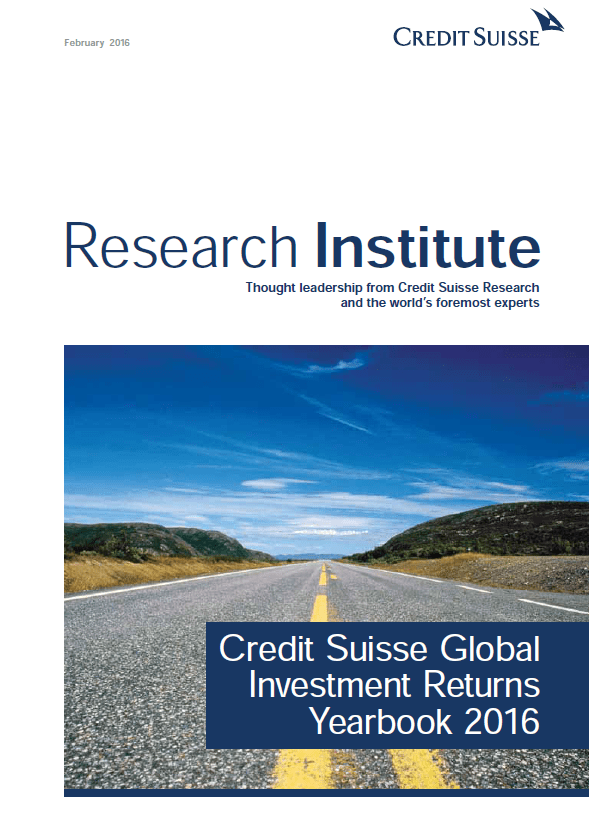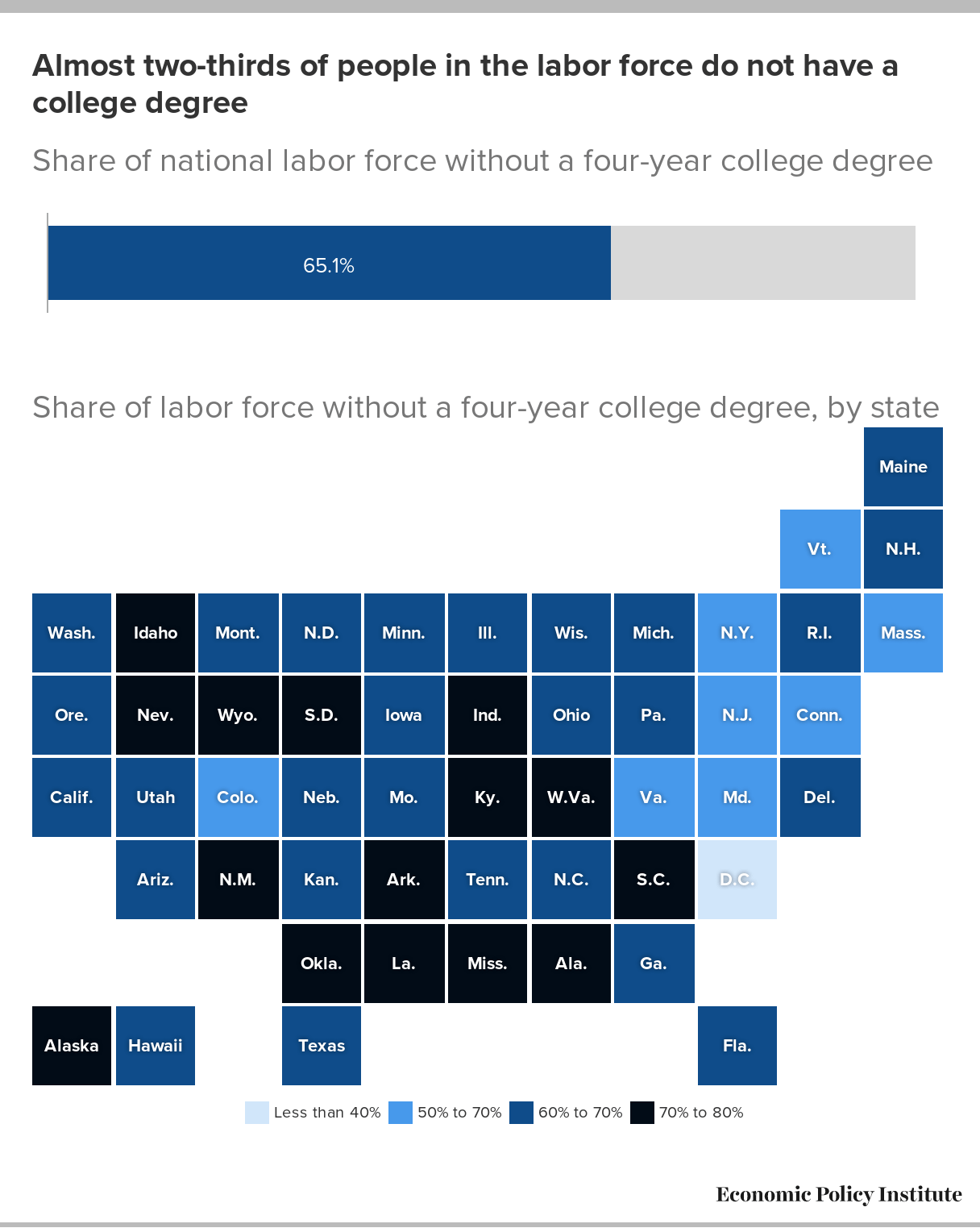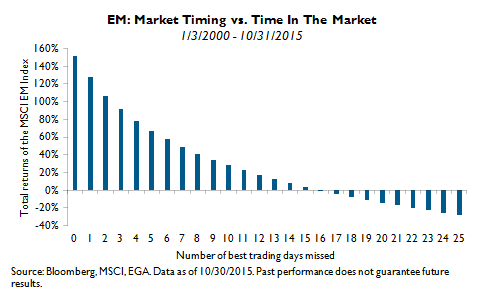Credit Suisse published the popular Global Investment Returns Yearbook for 2016 last month. The report contains a wealth of data especially from a long-term and country-specific perspective.
The following is a sample chart from the report. It shows the relative shows of the equity markets by country at the end of 1899 and 2015:
Click to enlarge
Credit Suisse Global Investment Returns Yearbook 2016 
The US equity market capitalization of the end of 1899 was just one-fourth of the world markets capitalization. Today it accounts for over 52%. UK on the other hand fell from over 25% of the world market size to just about 6% now.
Download the full Credit Suisse Global Investment Returns Yearbook for 2016 report (in pdf) by clicking on the above image.
Source: Credit Suisse
Related: Download: Credit Suisse Global Investment Returns Yearbook 2015


